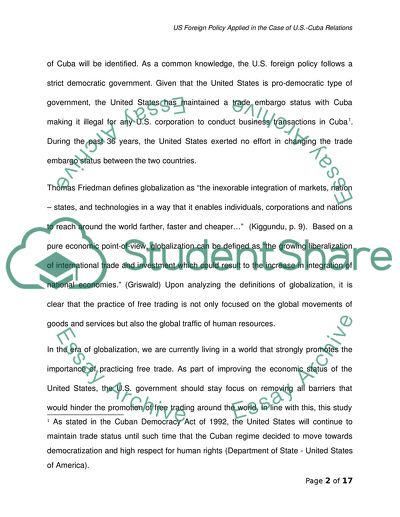Cite this document
(US Foreign Policy in the Case of U.S. Cuba Relations Research Paper, n.d.)
US Foreign Policy in the Case of U.S. Cuba Relations Research Paper. Retrieved from https://studentshare.org/politics/1727145-culture-and-public-policy
US Foreign Policy in the Case of U.S. Cuba Relations Research Paper. Retrieved from https://studentshare.org/politics/1727145-culture-and-public-policy
(US Foreign Policy in the Case of U.S. Cuba Relations Research Paper)
US Foreign Policy in the Case of U.S. Cuba Relations Research Paper. https://studentshare.org/politics/1727145-culture-and-public-policy.
US Foreign Policy in the Case of U.S. Cuba Relations Research Paper. https://studentshare.org/politics/1727145-culture-and-public-policy.
“US Foreign Policy in the Case of U.S. Cuba Relations Research Paper”, n.d. https://studentshare.org/politics/1727145-culture-and-public-policy.


